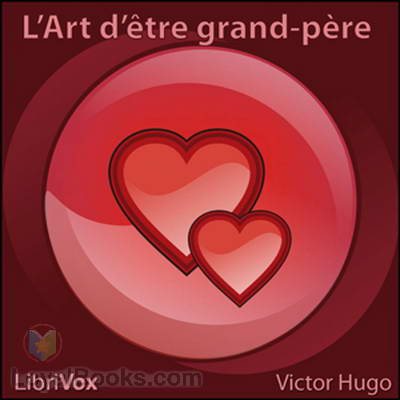In "L'Art d'être grand-père," Victor Hugo seamlessly blends his profound insights on life, love, and aging with his signature lyrical prose. Through the lens of grandparenthood, Hugo explores the passing of time, the joys of familial relationships, and the enduring power of memories.
The collection of poems and reflections within this book offer a touching and heartfelt portrayal of the unique bond between a grandparent and grandchild. Hugo's nostalgic and introspective tone invites readers to reflect on their own relationships with older generations, stirring emotions of gratitude and appreciation.
Throughout the book, Hugo skillfully weaves together themes of youth and old age, innocence and wisdom, creating a poignant and timeless tribute to the beauty of growing old. His poignant observations on life's fleeting nature and the importance of cherishing moments with loved ones resonate deeply with readers of all ages.
Overall, "L'Art d'être grand-père" is a moving and introspective exploration of the profound impact that grandparents have on our lives. Hugo's poetic prose and heartfelt reflections make this book a must-read for anyone looking to ponder the complexities and joys of family bonds.
Book Description:
L’Art d’être grand-père est un recueil de poèmes que Victor Hugo a publié en 1877. Suite à la mort de Charles Hugo, un de ses fils, et de sa femme, Victor Hugo prend en charge ses deux petits enfants Georges et Jeanne Hugo. Il écrit plusieurs poèmes illustrant les comportements et l’innocence reliée à ses petits-enfants qu’il élève seul et avec tendresse.
(Résumé par Wikipédia)
L’Art d’être grand-père (”The Art of Being a Grandfather”) is a series of eighteen poems by Victor Hugo, published in 1877. They were among the last he wrote.
On 13 March 1871, his 44-year-old son Charles died of a stroke, while riding in a carriage to a farewell dinner for some of Victor’s friends at a restaurant in Bordeaux. Charles’s wife died shortly afterwards, and Victor Hugo became the guardian of their children, Georges and Jeanne Hugo. The poems describe the feelings of a grandfather entrusted with innocent young children. Love and tenderness are celebrated, and the complexities, politics, and grand themes of his other poems are set aside.
